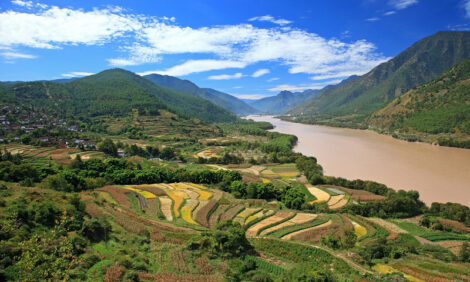



Dairy leads continued climb in farmer confidence
NEW ZEALAND - Confidence has continued to climb among New Zealand’s farmers led by the country’s buoyant dairy sector.
The latest Rabobank/Nielsen Rural Confidence Survey, taken in June, has found that 40 per cent of the nation’s farmers now expect the economy to improve in the next 12 months, up significantly on the 22 per cent who had that expectation in the previous survey.
The number of farmers expecting economic conditions to decline lowered to 26 per cent (from 43 per cent previously).
Rabobank general manager Rural New Zealand Ben Russell said the improvement in rural confidence – the second increase observed in two consecutive surveys – had occurred despite the strengthening New Zealand dollar, which is at record highs.
Not surprisingly, dairy farmers continued to report the brightest outlook of all agricultural producers this survey – 78 per cent expecting the agricultural economy to improve, a large move up from 48 per cent with this expectation in the previous survey.
“Fonterra’s record forecast payout announcement of NZD 5.53/kgMS for the 2007/08 season, combined with international dairy product prices continuing to climb, has lifted dairy farmer confidence to a further high,” Mr Russell said. “Dairy farmers were last this optimistic in 2000 when the payout was NZD 5.00/kgMS followed by NZD 5.33/kgMS the next season.”
Mr Russell said overall farmer confidence levels would also have been boosted by some positive seasonal conditions.
“Significant rain on the east coast during mid-June has certainly helped to lift spirits in that region and improved the chances of a good spring,” he said. “However most farms in the area still face very tight feed supplies over winter, as well as lower than usual lambing percentages and many farmers have disposed of at least some capital stock.”
“Seasonal conditions across the top half of the North Island have been relatively mild, with good rainfall and mild temperatures generating strong winter pasture growth. Calving and lambing have commenced in some areas and will build now through late winter and into spring.”
Mr Russell said the latest survey also showed what appeared to be a “tentative upturn” in sheep and beef farmer confidence, although net confidence levels in both sectors remained in negative territory.
The survey found 21 per cent of sheep farmers and 22 per cent of beef farmers expect the economy to improve (up from seven per cent and 15 per cent respectively in the previous survey). However, 40 per cent of sheep farmers and 35 per cent of beef farmers still expect conditions to worsen.
Mr Russell said the improved outlook among sheep and beef farmers came despite the fact meat prices are still well below levels seen a year ago.
“Lamb schedule prices remain flat and are now below the levels of the same period in 2006,” he said, “plus lamb and beef producers are also struggling with a dollar which is continuing to climb into record new territory, with little apparent relief in sight.”
“However there are positive signs for lamb and beef. Global market conditions are positive and the recent announcement that PPCS and Alliance plan to work more closely together to market product in export markets has been well received by farmers.”
Overall, New Zealand farmers’ income expectations also improved, with 46 per cent expecting to receive higher incomes in the next 12 months, compared to 33 per cent in the previous survey. Dairy farmers were the most optimistic about income, with 92 per cent expecting gross farm incomes to increase.
However, dairy farmers were expecting their costs to escalate, Mr Russell pointed out, with 97 per cent anticipating input cost increases over the next 12 months.
Sheep and beef farmers also had a brighter income outlook. While only 21 per cent of sheep farmers expected higher incomes, there was a considerable reduction in the number expecting their incomes to go down – 45 per cent compared to 63 per cent last survey. A total of 24 per cent of beef farmers expected higher gross farm incomes, up slightly from 19 per cent previously.
Mr Russell said sheep farmers’ incomes would likely be positively impacted by an improved international outlook, with Australian lamb production expected to fall five per cent during the 2007/08 season due to the ongoing effects of drought. “Global market conditions for animal protein also remain positive for New Zealand as a number of our competitors are being impacted by intensive livestock production costs which are rising on the back of the biofuel-generated grain price surge,” he said.
More New Zealand farmers are expecting to increase their investment in their farm businesses. The latest Rabobank/Nielsen Rural Confidence Survey found 27 per cent of farmers planned to invest more in their farm over the next 12 months (compared to 21 per cent in the previous survey) while 60 per cent expected to maintain existing levels of investment (compared to 59 per cent previously).
Of the sectors, an overwhelming 99 per cent of dairy farmers expect to maintain or increase investment levels on their farms, as do 81 per cent of sheep farmers and 82 per cent of beef farmers.
Mr Russell said Hawkes Bay and Wairarapa farmers were the exception, with 28 per cent anticipating decreasing their investment. “This is likely to be a reflection of the destocking occurring due to very dry autumn conditions which were experienced in the area,” he said.
The bi-monthly Rabobank/Nielsen Rural Confidence Survey is the only study of its type in New Zealand. A panel of approximately 767 farmers across New Zealand was surveyed in the last survey period.
TheCattleSite News Desk


